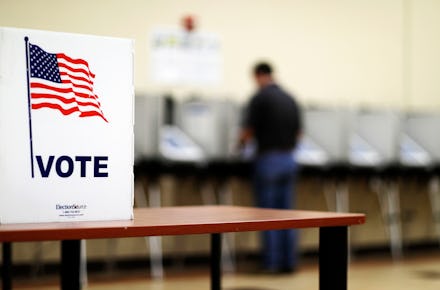Is the Democratic Congressional Campaign Committee stifling dissent within the party?

A recently released document from the Democratic Congressional Campaign Committee — the Democratic Party’s official organization for getting Democrats elected to the House of Representatives — has a lot of progressive activists worried.
A copy of the DCCC’s Memorandum of Understanding for candidates running in the DCCC’s “Majority Maker districts” — districts that it considers competitive — details the organization’s criteria for supporting a candidate.
While there are some provisions that progressives may approve of — like mandating campaigns have strong sexual harassment policies and training — other provisions appear to be designed to quell dissent from the growing movement of outsider left candidates who take issue with some of the party’s positions and practices.
Under the document’s section labeled “Communications,” for example, the DCCC lays out a number of provisions requiring candidates focus on “shared values” and “unity” — and even requiring candidates to hold a “unity event” with their primary opponent or opponents after the primary race.
1. The candidate agrees to run a primary campaign that focuses on highlighting our shared values as Democrats and holding Republicans accountable.
2. The candidate agrees not to engage in tactics that do harm to our chances of winning a General Election. In addition, the Candidate agrees to hold a unity event with their primary opponents following the primary.
3. The DCCC agrees to provide messaging and strategic guidance on holding the Republicans accountable and highlighting our shared values as Democrats.
Progressives have voiced concerns that these stipulations are an attempt to bring leftist candidates in line with the party’s more mainstream values.
“The DCCC is scared stiff that after 2018 there will be a huge wave of progressive Democrats taking over the party that won’t be accountable to their corporate interests,” said Saikat Chakrabarti, executive director of the group Justice Democrats, which supports progressive candidates in primary races.
In addition to potentially limiting the ways progressive candidates who hope to receive DCCC funds can distinguish themselves in a primary, the agreement also places limits on how a campaign spends its budget.
Under “Finance and Budget,” the agreement stipulates “the candidate agrees to have a campaign budget completed six months prior to their primary and to focus on preserving at least 75% of funds raised for paid communications.”
Groups like Justice Democrats say these stipulations put limits on the amount of resources Democratic candidates can put into grassroots strategies, like door-knocking and get-out-the-vote drives.
A political consultant who managed congressional campaigns over multiple cycles, choosing to speak anonymously for job security reasons, told Mic that the agreement is “very vaguely worded” with regard to both the communications and unity requirements.
“It leaves a lot of room for interpretation for the committee to come back and say that it doesn’t match with the agreement,” the consultant said.
“You don’t want to be too cookie-cutter about this stuff. But at the same time, [75% communications spending] could be a big challenge for a campaign.”
The former campaign manager also lauded the inclusion of sexual harassment provisions, saying that in all of the DCCC candidate training sessions he attended, he does not recall sexual harassment “even being so much as mentioned.”
Mic reached out to the DCCC for comment but did not immediately receive a response.